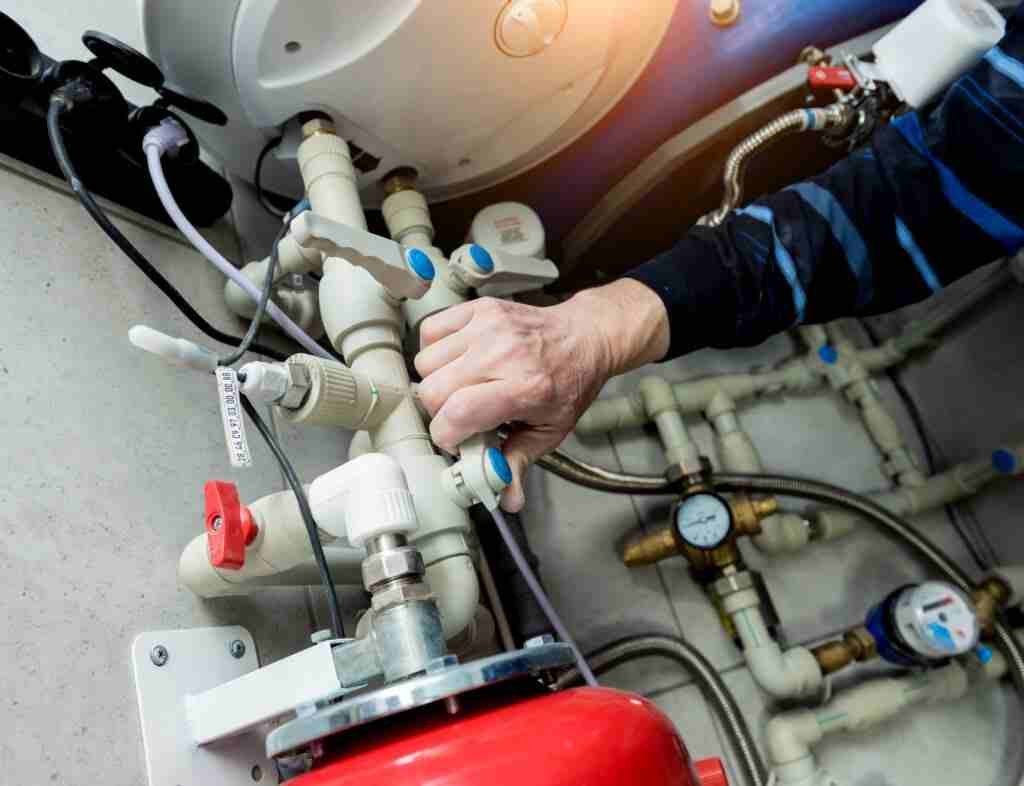Imagine stepping out of your bed onto a warm, toasty floor, even on the chilliest mornings in the Bay Area. It’s a comfort that in-floor heating systems offer, turning your home into a cozy oasis. And at the heart of this modern luxury lies an essential component: your water heater. In this guide, we’ll dive into the world of water heater installation for in-floor heating systems with the help of Class A Drain, exploring the different types of water heaters, their efficiency, and how to make sure you have a warm, inviting home, even when the weather outside is anything but.
Whether you’re considering installing an in-floor heating system in your existing home or planning for it in a new build, choosing the right water heater is a decision that will impact your daily comfort and energy bills. The synergy between your heating system and water heater is the key to a warm and inviting home. This guide will help you navigate the various options, from traditional tank-style heaters to more energy-efficient tankless models, ensuring that you make an informed decision for a cozy and cost-effective in-floor heating experience with the assistance of professional water heater installation services in your Bay Area home.

Types of Water Heaters for In-Floor Heating
Selecting the right water heater begins with understanding the various types available, including traditional tank-style water heaters and more modern tankless models. Each has its advantages and considerations, which will significantly impact your in-floor heating system’s performance. Additionally, determining how to size a water heater for your home is essential to ensure it meets your heating demands effectively.
Sizing the Water Heater for Your Space
Determining the appropriate size of your water heater is crucial for meeting the heating demands of your space. Factors such as the square footage, insulation, and desired temperature levels must be taken into account to ensure your water heater is appropriately sized. An undersized unit may struggle to provide sufficient warmth, while an oversized one can lead to energy waste and higher operational costs, making accurate sizing a key consideration for efficient in-floor heating. Additionally, the benefits of regular water heater maintenance ensure that your properly sized unit continues to function at its best, offering dependable warmth and cost-efficiency.
Tank vs. Tankless Water Heaters
The choice between tank and tankless water heaters can significantly influence energy efficiency and heating capabilities. Exploring the pros and cons of each type will help you make an informed decision based on your in-floor heating needs.
Energy Efficiency and Cost Savings
Understanding the energy efficiency ratings and long-term cost savings of different water heater models is essential for managing your energy bills while enjoying a comfortably heated home.
Professional Installation Considerations
Professional installation of your water heater is vital to ensure its proper functioning within your in-floor heating system. Knowledgeable installers can address any site-specific challenges and provide seamless integration.

Maintenance and Longevity of Water Heaters
Regular maintenance is essential for prolonging the lifespan and efficiency of your water heater. Learning about maintenance routines and tips for enhancing the longevity of your unit is crucial.
Integrating Water Heaters with In-Floor Heating Systems
Integrating your water heater seamlessly with your in-floor heating system is key to achieving optimal warmth and comfort in your home. Exploring the integration process ensures a harmonious heating setup.
Environmental Impact and Sustainability
Consider the environmental impact of your water heater choice. Discover eco-friendly options that align with sustainability goals, reducing your carbon footprint.
Water Quality and Its Impact on Water Heaters
Water quality can affect the performance and lifespan of your water heater. Understanding how water quality impacts your system helps you maintain consistent efficiency.

Regulatory Compliance and Safety Standards
Adhering to local regulations and safety standards is critical for both the installation and operation of your water heater. Ensure that your chosen unit meets all necessary compliance requirements.
Troubleshooting and Common Issues with Water Heaters
Learn how to troubleshoot common water heater issues to quickly address any problems that may arise in the future, ensuring your in-floor heating system continues to run smoothly.
Conclusion:
In conclusion, the selection and installation of the right water heater for in-floor heating systems in your Bay Area home are pivotal decisions that impact both your daily comfort and long-term cost savings. Understanding the diverse options, from traditional tank-style to energy-efficient tankless water heaters, empowers homeowners to make informed choices. Sizing your water heater accurately, in harmony with the heating demands of your space, ensures efficient operation. Energy efficiency, maintenance, and compliance with safety standards contribute to the longevity of your water heater and its environmental sustainability.
What’s the main difference between tank and tankless water heaters for in-floor heating systems?
Tank water heaters store and heat a large volume of water continuously, while tankless heaters heat water on-demand, providing energy savings and a more compact design.
2. How do I determine the right water heater size for my in-floor heating system?
Calculate your space’s heating load based on square footage, insulation, and desired temperatures, and select a water heater that meets this demand.
3. Are tankless water heaters more energy-efficient than tank-style heaters for in-floor heating?
Yes, tankless heaters are typically more energy-efficient, as they only heat water when needed, reducing standby energy loss.
4. What are the maintenance requirements for water heaters in in-floor heating systems?
Regular maintenance includes flushing the tank, checking for leaks, and inspecting the anode rod and temperature-pressure relief valve.
5. Do water quality and hardness affect the performance of water heaters in in-floor heating systems?
Yes, water quality can impact the longevity of your water heater. Hard water, for example, can lead to mineral buildup and reduce efficiency, requiring regular maintenance.

